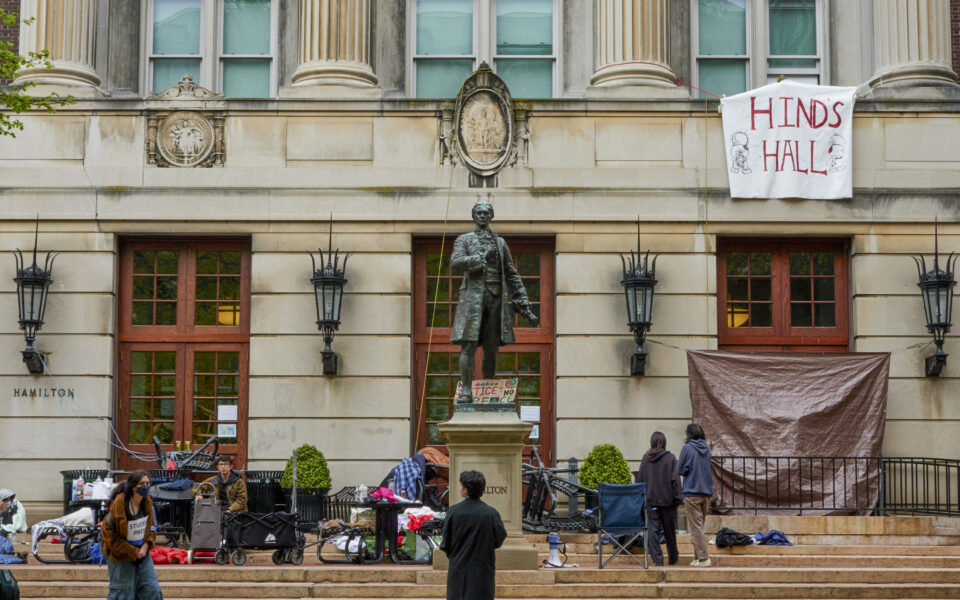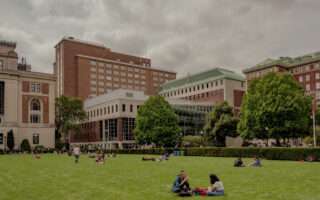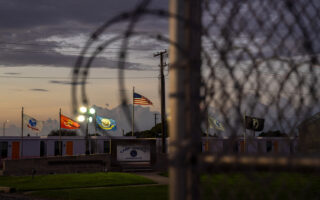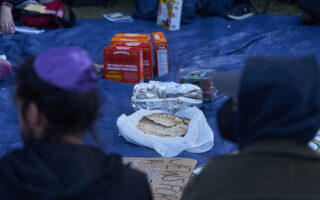What we know about the protests and arrests at Columbia University

Columbia University is grappling with the fallout from its president’s promise to Congress that she would crack down on unsanctioned protests, and her decision to ask the police to clear an encampment on campus, resulting in the arrests of more than 100 students last month.
On Tuesday, after protesters seized Hamilton Hall overnight, Columbia called in the police again and asked officers to remain on campus until May 17, after commencement.
“The events on campus last night have left us no choice,” Minouche Shafik, Columbia’s president, said in a letter to a New York Police Department official Tuesday.
Shafik’s plea came after almost two weeks of protests rocked the university, with demonstrators building (and rebuilding) an encampment, recriminations over the initial summoning of the police to campus April 18, and accusations that Columbia has effectively allowed protesters, in some instances, to celebrate Hamas and target Jewish students for intimidation.
Last week, the university started offering hybrid classes, an acknowledgment that the disputes at the center of campus tension were unlikely to be resolved before the end of the school year. Commencement is scheduled for May 15.
On Friday, university leaders signaled that they were not eager to call in the police again.
“We called on NYPD to clear an encampment once, but we all share the view, based on discussions within our community and with outside experts, that to bring back the NYPD at this time would be counterproductive, further inflaming what is happening on campus, and drawing thousands to our doorstep who would threaten our community,” Columbia leaders, including Shafik, wrote. “Having said that, we also need to continue to enforce our own rules and ensure that those who violate the norms of our community face consequences.”
Columbia said Monday evening that it had started to suspend students who remained in the encampment, after they effectively declined an offer from the university to limit discipline. The Hamilton Hall occupation began hours later.
At around 9 p.m. Tuesday, police returned to Columbia and began arresting protesters.
How Columbia got here
Since the Oct. 7 attack by Hamas on Israel, American college campuses have been hubs of protest and debate. The scene at Columbia has been particularly contentious, with protests drawing hundreds of demonstrators and some faculty members drawing attention for statements that critics considered to be antisemitic.
Columbia administrators, like their counterparts on campuses across the country, have struggled to fine-tune a response that balances discipline, free speech and institutional and national politics. For example, Columbia suspended two pro-Palestinian student groups after a walkout, and it has rewritten its protest policies, suspended some students, and moved to cut or reduce ties to some faculty members.
The university’s approach was the focus of a congressional committee hearing April 17. Over more than three hours in Washington, Shafik and other Columbia leaders tried to placate Republican lawmakers by acknowledging that they had been unprepared for the tensions of recent months and promising new crackdowns.
Although their answers appeared to please many lawmakers on Capitol Hill, they stirred unrest on campus, where protesters had built an encampment in the hours before Shafik’s testimony.
Columbia called police twice in April
Less than 24 hours after the hearing adjourned, New York City police officers in riot gear entered the private campus at the request of Shafik and Columbia leaders. Police swept into the encampment to arrest defiant protesters and dismantle the demonstration, which was calling for the university to eliminate its financial ties to Israel. Authorities reported more than 100 arrests.
Many people welcomed the decision to call in police and said that Shafik was well within her power to shut down unauthorized protests on private property. But the decision also provoked fresh outcry from students, faculty members, free-speech groups and critics of Israel, who argued that it was counterproductive to shut down a peaceful protest, particularly on a campus that is supposed to be a marketplace of ideas.
By the time many of the critiques rolled in, protesters had already started gathering again, chanting some of the same slogans – “We don’t want no Zionists here” and “Israel is a racist state” – that Shafik had suggested were creating “a harassing and intimidating environment for many of our students.”
Protesters pitched tents again, but the administration declined to summon the police again. Instead, it sought to negotiate with protesters, to seemingly limited effect.
After protesters took over Hamilton Hall, an important building on campus, Columbia lost patience and brought the police back to campus. Shafik, in her letter to the NYPD, said the university made its decision “with the utmost regret.”
Some protests unnerved Jewish students
Columbia cannot control what happens off its property, and the neighborhood around its campus has drawn significant attention in the aftermath of the arrests, with some reports of antisemitic harassment.
“Go back to Poland!” one masked protester who clutched a Palestinian flag shouted outside the Columbia campus gates, according to a video posted on the social platform X. Elsewhere online, a Columbia student said protesters had stolen, and then tried to burn, an Israeli flag, and that Jewish students had been splashed with water.
The Columbia chapter of Chabad, an international Orthodox Jewish movement, said protesters targeted Jewish students with expletives as they left campus.
The White House condemned the episodes of antisemitic protest. A spokesperson, Andrew Bates, said that “calls for violence and physical intimidation targeting Jewish students and the Jewish community are blatantly antisemitic, unconscionable and dangerous.”
Elie Buechler, an Orthodox rabbi who works at Columbia, said that campus and city police officers had failed to guarantee the safety of Jewish students “in the face of extreme antisemitism and anarchy” and suggested that the students return home “until the reality in and around campus has dramatically improved.”
That view was not universally shared. Hillel, the Jewish student organization on campus, called for increased security and said it was not urging Jewish students to leave.
Some on-campus activists distanced themselves from the agitators.
“There’s so many young Jewish people who are, like, a vital part” of the protests, said Grant Miner, a Jewish graduate student at Columbia who belongs to a student coalition calling on Columbia to divest from companies connected to Israel.
That group said in a statement, “We are frustrated by media distractions focusing on inflammatory individuals who do not represent us” and added that the group’s members “firmly reject any form of hate or bigotry.”
This article originally appeared in The New York Times.






